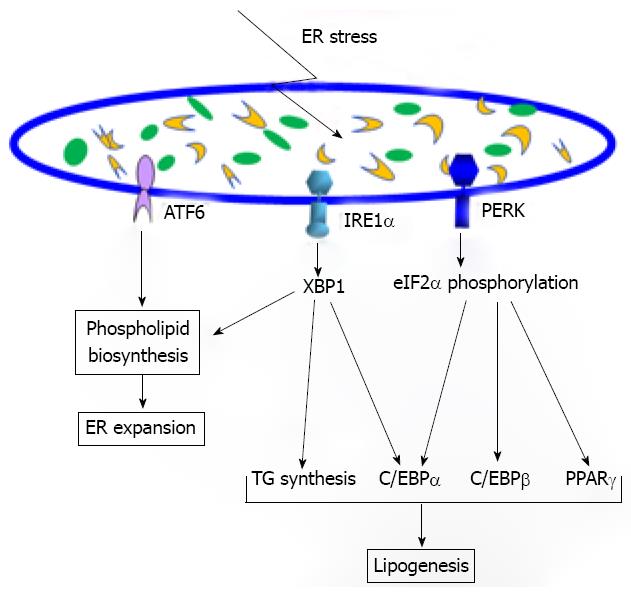Copyright
©2010 Baishideng.
World J Hepatol. Jun 27, 2010; 2(6): 203-207
Published online Jun 27, 2010. doi: 10.4254/wjh.v2.i6.203
Published online Jun 27, 2010. doi: 10.4254/wjh.v2.i6.203
Figure 1 The involvement of the Unfolded Protein Response (UPR) signaling in lipid metabolism.
The UPR pathway through inositol-requiring 1α (IRE1α)/XBP1 or activating transcription factor 6 is involved in endoplasmic reticulum (ER) expansion by enhancing phospholipid biosynthesis under ER stress conditions. The IRE1α/XBP1 pathway also regulates lipogenesis by inducing expression of the key enzymes required for triglyceride synthesis under metabolic stress. Additionally, the IRE1α/XBP1 UPR branch can drive C/EBPα expression, facilitating adipogenesis and possibly lipogenesis. The UPR pathway through PERK/eukaryotic translation-initiation factor 2α can stimulate expression of the key lipogenic regulators C/EBPα, C/EBPβ, and PPARγ, promoting lipogenesis under metabolic stress.
- Citation: Zheng Z, Zhang C, Zhang K. Role of unfolded protein response in lipogenesis. World J Hepatol 2010; 2(6): 203-207
- URL: https://www.wjgnet.com/1948-5182/full/v2/i6/203.htm
- DOI: https://dx.doi.org/10.4254/wjh.v2.i6.203









